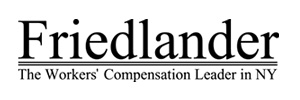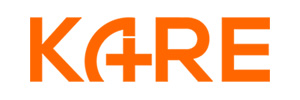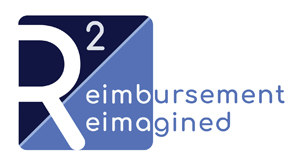AHCA/NCAL: U.S. Supreme Court Issues Vaccine Mandate Decisions
The U.S. Supreme Court today issued opinions in the Centers for Medicare and Medicaid Services (CMS) and Occupational Safety and Health Administration (OSHA) vaccination requirement cases.
The bottom line is as follows:
- The preliminary injunctions against enforcement of the CMS interim final rule have been stayed, meaning that CMS can enforce its IFR nationwide; and
- The OSHA emergency temporary standards have been stayed, meaning they cannot be enforced.
What This Means for Long Term Care Providers
Nursing facilities and facilities that care for individuals with disabilities (ICF/IIDs) nationwide will be required to implement CMS’ rule. Assisted living providers are not included in the CMS IFR and are now not subject to a federal vaccine/testing requirement.
The QSO memo specific to nursing homes outlines the requirements that long term care providers must meet in order to be in compliance with this rule. AHCA/NCAL has highlighted key points below, but providers are strongly encouraged to review the QSO memo in full.
Which staff fall under the rule?
Staff refers to all individuals providing any care or services for the facility and its residents, whether under contract or arrangement. The only individuals this does not apply to are individuals who telework full time or who provide services entirely remotely.
When are facilities required to be in compliance?
CMS implementation will be phased in as follows:
- January 27, 2022 for the first dose, which includes:
- Policies and procedures developed and implemented (template policies and procedures are available on the AHCA/NCAL COVID-19 website under ‘Vaccines’).
- 100 percent of staff having received one dose of vaccine, except those with or pending an exemption request and those having a temporary delay recommended by the CDC.
- A facility above 80 percent and has a plan to achieve a 100 percent staff vaccination rate within 60 days would not be subject to enforcement action (e.g., civil monetary penalties [CMPs]).
- February 28, 2022 for the second dose, which includes:
- Policies and procedures developed and implemented.
- 100 percent of staff having completed the vaccine series, except those with granted exemption request and those having a temporary delay recommended by the CDC.
- A facility above 90 percent and has a plan to achieve a 100 percent staff vaccination rate within 30 days would not be subject to enforcement action (e.g., CMPs).
- Facilities with less than 100 percent staff vaccination rates may be cited but will be exempted from enforcement actions (e.g., CMPs) if they meet the following criteria:
- January 27, 2022: Facility has more than 80 percent staff vaccination and a plan to achieve a 100 percent staff vaccination rate within 60 days.
- February 28, 2022: Facility has more than 90 percent vaccination rates and a plan to achieve a 100 percent staff vaccination rate within 30 days.
How will compliance be determined?
Compliance will be determined through the regular survey process, including through standard and complaint visits. Facilities are expected to track vaccination status, including booster status for each staff person and any exemptions, using a tracking tool of their choice. A facilities’ tracking mechanism should clearly identify each staff’s role, assigned work area, and how they interact with residents. Survey teams will also ask for information on how unvaccinated staff are assigned and additional precautions taken to prevent transmission. CMS will provide a tool for facilities to use.
How will citations, including scope and severity, be determined?
Facilities found out of compliance (less 100 percent of staff vaccinated, not including those with valid exemptions) will receive a citation with scope and severity based on staff vaccination rates, number of COVID-19 cases, policy and procedure implementation, and infection control practices.
On page 10-11 of the QSO memo, CMS provides detailed guidance on scope and severity and a scope and severity grid on page 14.
Do unvaccinated staff need to follow any special precautions?
Yes, staff who are not yet fully vaccinated, who have a pending or been granted an exemption, or who have a temporary delay as recommended by the CDC must adhere to additional precautions that are intended to mitigate the spread of COVID-19. This includes, but is not limited to:
- Reassign unvaccinated staff to non-patient areas and duties.
- Require staff who have not completed their primary vaccination series to follow additional CDC-recommended precautions, such as adhering to universal source control and physical distancing measures even if the facility is located in a county with low-to-moderate community COVID transmission. Although OSHA’s vaccine mandate is not in effect, there are additional OSHA-required measures which should also be followed.
- Require at least weekly testing.
- Require use of a NIOSH-approved N95 or equivalent or higher-level respirator for source control, regardless of whether they are providing direct care to or otherwise interacting with patients.
Previous AHCA/NCAL webinars provided detailed information on how to implement medical and religious exemptions. The Association will host a webinar on implementing the CMS IFR next week; additional information will be provided soon.
Additional information is available on ahcancalED and #GetVaccinated. Please contact COVID-19@ahca.org with any questions.
Please email COVID19@ahca.org for additional questions, or visit ahcancal.org/coronavirus for more information.
NYSHFA/NYSCAL CONTACTS:
Stephen B. Hanse, Esq.
President & CEO
518-462-4800 x11




